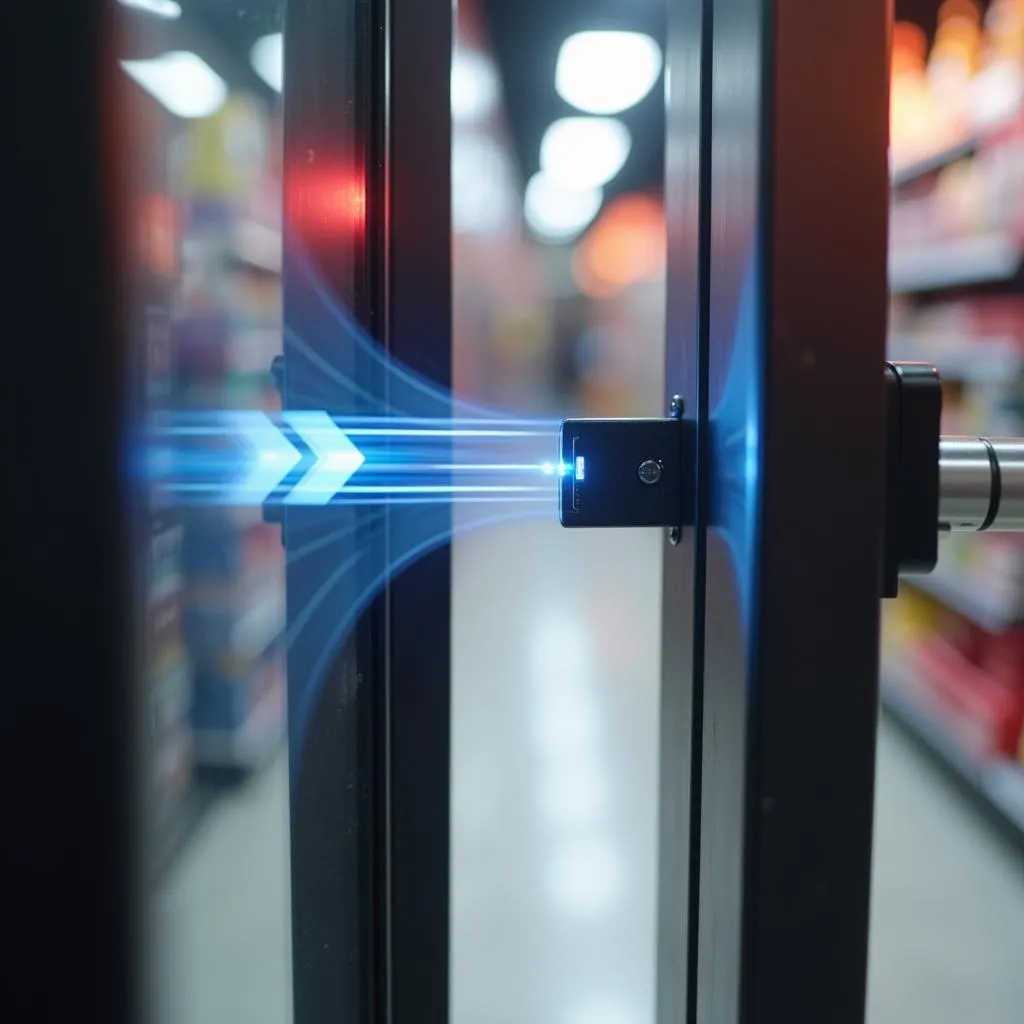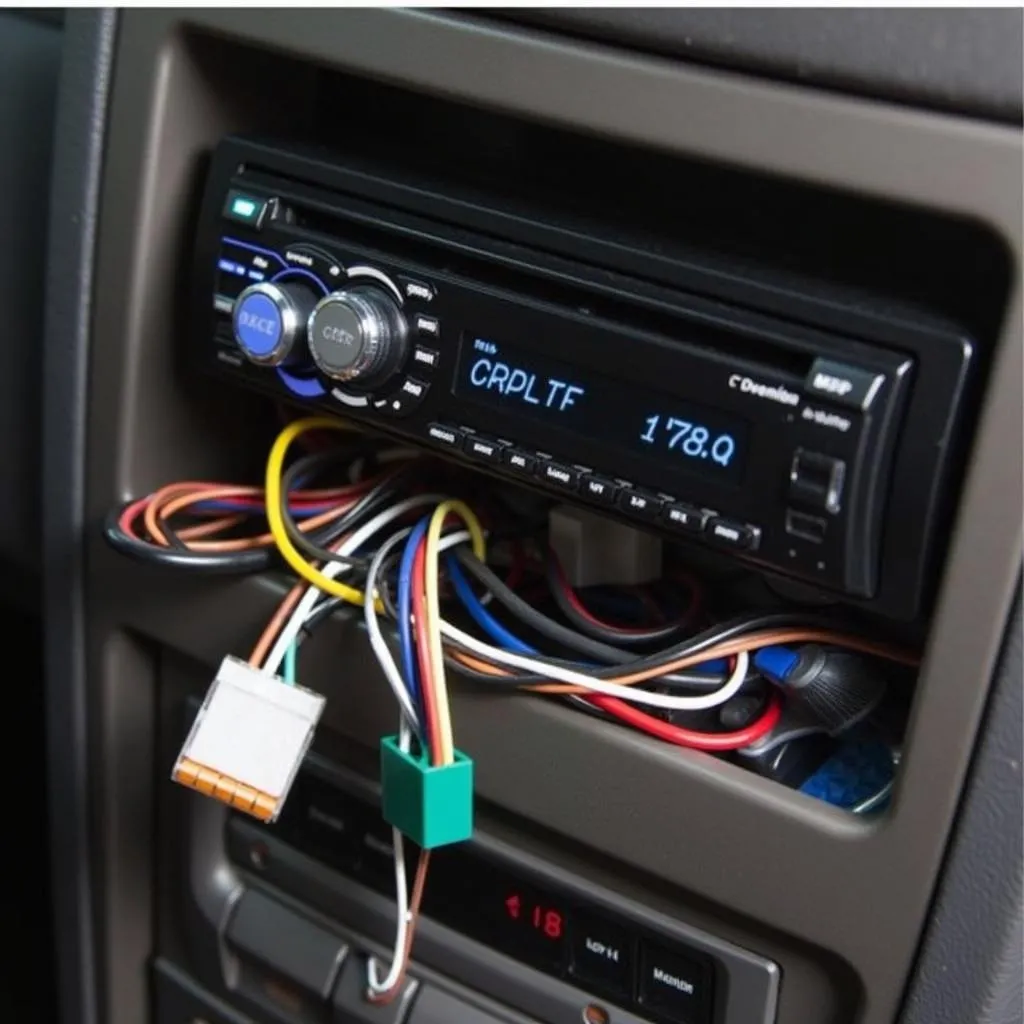Experiencing an intermittent brake warning light on your dashboard can be unsettling. This issue, while potentially harmless, could also signal a serious underlying problem with your vehicle’s braking system. This article will explore the common causes of an intermittent brake warning light and guide you through possible solutions.
Understanding the Brake Warning Light
Your car’s brake warning light is a crucial part of its safety system. When illuminated, it indicates a potential issue with the braking system that requires attention. While a solid brake warning light usually points to a persistent problem, an intermittent light can be trickier to diagnose.
Common Causes of an Intermittent Brake Warning Light
Several factors can cause your brake warning light to flicker intermittently:
- Low Brake Fluid: This is one of the most common culprits. Brake fluid decreases naturally over time, and a low level can trigger the warning light, especially when braking.
**
- Faulty Brake Light Switch: The brake light switch, located near the brake pedal, can wear out over time. A malfunctioning switch can confuse the car’s computer, leading to an intermittent warning light.
**
-
Worn Brake Pads: As brake pads wear down, they can trigger a sensor that illuminates the warning light. This is often accompanied by a screeching sound when braking.
-
Loose or Corroded Wiring: Wires connected to the brake system components can become loose or corroded, disrupting the signal and causing the light to flicker intermittently.
-
ABS System Malfunction: An issue with the Anti-lock Braking System (ABS), such as a faulty wheel speed sensor, can also trigger the warning light.
-
Faulty Parking Brake Switch: In some vehicles, a problem with the parking brake switch can also trigger the brake warning light intermittently, especially if the parking brake is not fully disengaged.
Diagnosing the Problem
Identifying the root cause of an intermittent brake warning light requires a systematic approach:
-
Check Brake Fluid Level: Begin by inspecting the brake fluid level in the reservoir. If it’s low, add the correct type of brake fluid as specified in your owner’s manual.
-
Inspect Brake Pads: Visually check the brake pads for wear. If they appear thin or you hear screeching when braking, it’s time for a replacement.
-
Test the Brake Light Switch: The brake light switch is relatively simple to test. If your brake lights aren’t working properly along with the intermittent warning light, it’s a strong indicator of a faulty switch.
-
Inspect Wiring and Connections: Carefully examine the wiring and connections related to the brake system for any signs of looseness, corrosion, or damage.
“A visual inspection can reveal a lot,” says John Smith, Senior Automotive Electrician at Smith’s Auto Repairs. “Don’t underestimate the importance of checking for simple things like loose connections or damaged wires.”
When to Seek Professional Help
While some causes of an intermittent brake warning light are easy to address, others require specialized knowledge and equipment. If you’re unable to pinpoint the issue or are uncomfortable working on your car’s braking system, it’s best to consult a qualified mechanic.
“Attempting to fix complex brake issues yourself can be dangerous if you’re not experienced,” cautions Smith. “It’s always best to err on the side of caution and seek professional help when dealing with brakes.”
Consider professional help if:
- You’ve checked the common causes and the light persists.
- You notice other symptoms like unusual noises, vibrations, or a spongy brake pedal.
- You’re unsure about how to safely diagnose or repair the issue.
You can find more specific guidance for your vehicle make and model by searching online. For instance, if you’re experiencing this issue with a 1998 Toyota Camry, a search for “98 Toyota Camry brake warning light intermittent” could provide valuable information.
Importance of Addressing the Issue
Ignoring an intermittent brake warning light can have serious consequences:
-
Safety Risk: A malfunctioning brake system puts you and others at risk, especially if the problem escalates while driving.
-
Costly Repairs: Ignoring a minor issue can lead to more severe damage over time, resulting in more extensive and expensive repairs down the line.
-
Reduced Vehicle Value: A persistent warning light can lower your car’s resale value.
Conclusion
An intermittent brake warning light, while potentially less alarming than a constant one, should never be ignored. By understanding the common causes, you can take the necessary steps to diagnose and address the issue. Remember, your safety and that of others on the road should always be the top priority. If in doubt, consult a qualified mechanic to ensure your car’s braking system is in optimal condition.
FAQs
1. Can driving with an intermittent brake warning light damage my car?
Yes, driving with a brake warning light, even if intermittent, can potentially cause further damage to the braking system and other related components.
2. How often should I check my brake fluid level?
It’s good practice to check your brake fluid level at least once a month and top it off if necessary.
3. Can a faulty ABS sensor cause an intermittent brake warning light?
Yes, a faulty ABS sensor can disrupt the brake system’s signals and trigger the warning light.
4. How long can I drive with a low brake fluid level?
It’s not recommended to drive with a low brake fluid level. Add brake fluid as soon as possible and have the system inspected for leaks.
5. Is it safe to drive my car if the brake warning light goes off after adding brake fluid?
If the light goes off after adding brake fluid and the level remains stable, it’s likely that low fluid was the culprit. However, it’s still advisable to have the system checked by a mechanic to ensure there are no leaks or other underlying issues.


